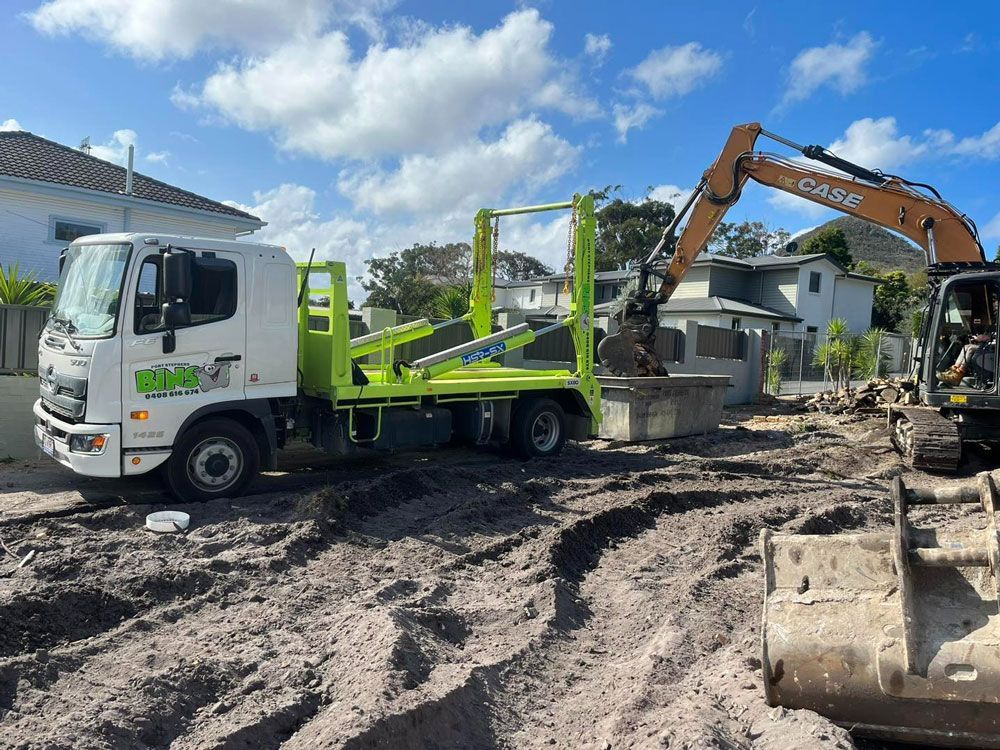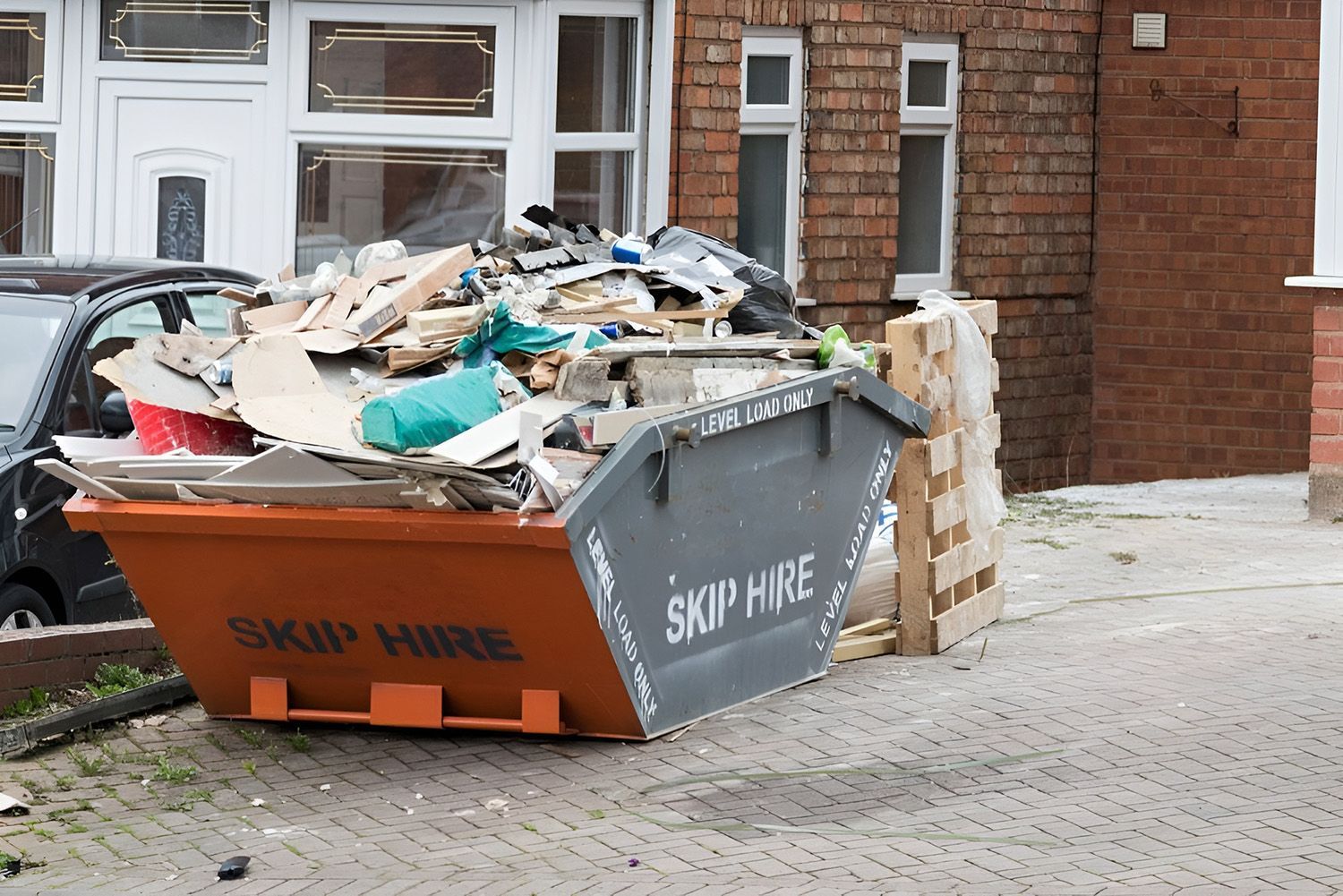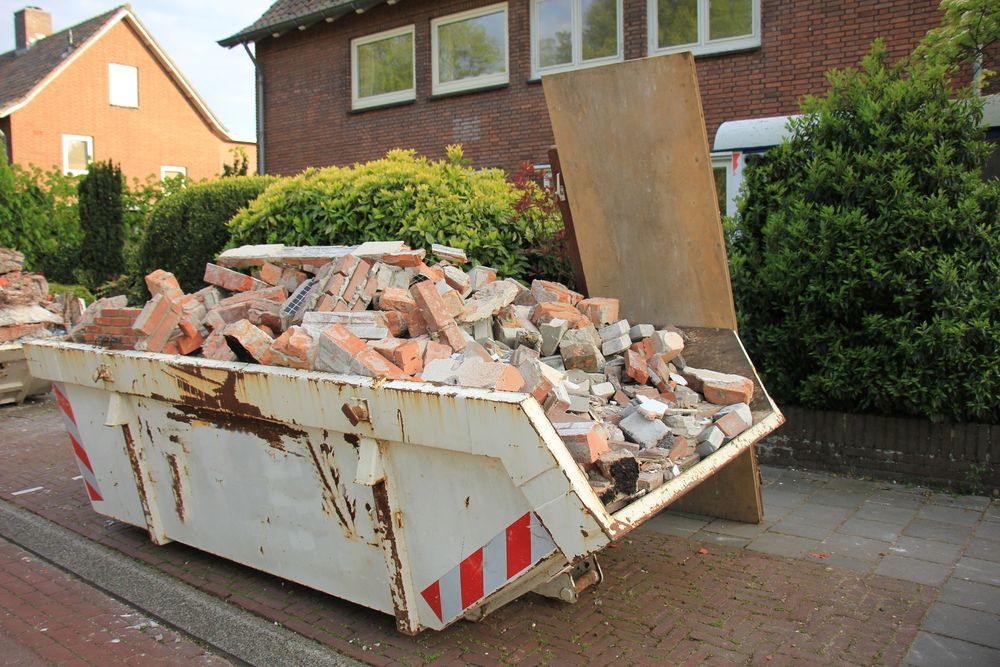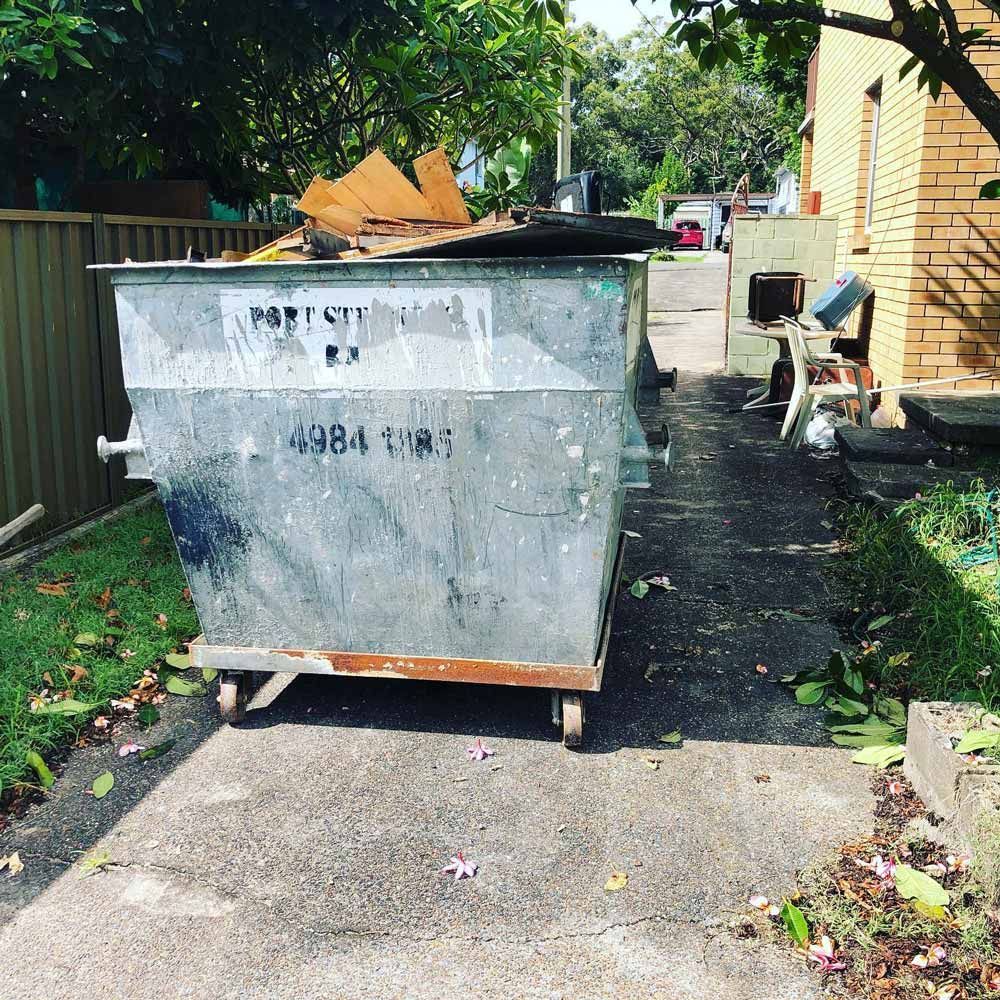Understanding The Weight Capacity Of A Skip

Skip bins are a convenient and reliable solution. When managing waste efficiently—whether during a home renovation, garden clean-up or a commercial project. However, while most customers know to choose their bin based on volume, many overlook an equally important factor: weight capacity. Overloading a skip bin is more than adding a few extra kilos—it can lead to safety hazards, fines, and project delays. Understanding how skip bin weight limits work is essential to ensuring a smooth, cost-effective and compliant waste disposal process.
In this blog, we’ll explain what determines skip bin weight limits, the impact of overloading, and how to choose the right skip for your waste type.
What Determines the Weight Limit of a Skip Bin
Every skip bin has a maximum weight it can safely carry. This is based not only on the bin's capacity but also on the truck transporting its legal limit on the road.
Factors that influence skip bin weight limits:
- Construction of the bin: Heavier-duty skips are designed for denser materials and larger loads.
- Transport regulations: Road transport laws restrict how much trucks can carry to protect roads and ensure public safety.
- Local council guidelines: Some areas may have specific limits for residential or commercial properties regarding skip placement and weight.
Understanding these restrictions helps you select a suitable skip for your waste and comply with all regulations.
Common Mistakes When Estimating Skip Bin Weight
Many people underestimate the actual weight of their waste—particularly when dealing with dense materials like soil, bricks or tiles. This leads to bin overload, collection issues, and unexpected charges.
Typical weight estimation mistakes:
- Assuming volume equals weight: Just because it fits doesn't mean it's within the limit.
- Ignoring material density: Heavy items like concrete or gravel weigh much more than general household waste.
- Overpacking: Tightly stuffing or stacking items to make "more room" can push the bin over its safe weight threshold.
It’s always best to ask your skip provider about the estimated weights of your type of waste before booking.
How Overloading a Skip Bin Can Cost You
Exceeding a bin’s weight capacity isn’t just a minor inconvenience—it can be costly and disruptive. Skip companies are legally obliged to follow weight restrictions for transport vehicles, and exceeding these limits can mean your bin can’t be collected until it’s lightened.
Consequences of skip bin overloading:
- Additional weight surcharges: Charged per tonne over the agreed limit.
- Bin collection refusal: If it’s too heavy, it won’t be picked up, delaying your clean-up.
- Legal and safety risks: Overloaded bins can cause accidents, truck strain or damage to driveways and footpaths.
Avoiding overload is in everyone’s best interest—financially and logistically.
Matching Your Waste Type with the Right Skip Bin
Not all waste is equal. The type of material you’re disposing of plays a key role in choosing a skip bin. Port Stephens Bins offers a range of skip types to match specific project needs.
Common bin and waste type pairings:
- Green waste bins: Best for branches, leaves, and garden clippings. They are light but voluminous.
- Mixed waste bins: Ideal for household rubbish or general clean-outs, combining various lighter materials.
- Heavy waste bins: Specifically designed for concrete, soil, bricks or tiles—dense materials with high mass.
Selecting a skip tailored to your waste type prevents weight overload and ensures smooth collection.
The Role of Skip Bin Weight Limits in Environmental Safety
Weight limits aren't just about keeping trucks legal—they play a broader role in protecting roads, infrastructure and the environment.
Environmental & safety benefits:
- Reduced road damage: Overweight bins can crack pavements or damage public infrastructure.
- Safer transportation: Properly loaded bins reduce risks of tipping or spillage during transit.
- Lower emissions: Trucks that carry weight within their limits operate more efficiently, reducing fuel use.
Tips for Keeping Your Skip Bin Within Its Weight Limit
Staying within your skip bin’s weight allowance is easier than you might think—it just takes a bit of planning and strategy.
Practical tips to avoid overloading:
- Break up bulky items: Disassemble furniture or branches to make the most of the space without stacking too high.
- Avoid loading wet materials: Wet soil or grass clippings can be deceptively heavy—let them dry if possible.
- Sort waste types: Don’t mix heavy rubble with lighter materials in a general bin.
- Load evenly: Spread weight across the bin’s base to avoid imbalances and make room for more.
Ask your skip bin hire provider for advice if you're unsure how to load your waste.
Why Professional Advice Matters When Hiring a Skip Bin
Every waste job is different. That’s why it pays to speak to professionals who know the ins and outs of skip bin logistics. An experienced provider can guide you to the right bin based on the volume and type of waste.
How expert advice makes a difference:
- Correct bin sizing: This avoids ordering one that’s too small or too large for your needs.
- Accurate weight estimates: This helps you budget and stay compliant with legal transport loads.
- Advice on placement & permits: Ensure you follow local bin location and road safety rules.
A quick phone call or online enquiry can save you time, money, and unnecessary stress.
Skip Bin Sizes Available for Different Projects
Whether you’re clearing a garage, landscaping the yard or managing a commercial build, there’s a skip size to suit every job. Knowing what’s available can help you plan more effectively and stay within legal weight limits.
- 2m³ Mini Skips: Great for spring cleans, small garden jobs or office decluttering.
- 4m³ to 6m³ General Bins: Ideal for bathroom or kitchen renovations and furniture disposal.
- 8m³ & above (Hook Bins): Suitable for builders, demolition projects and heavy construction waste.
Each skip type comes with specific weight allowances—ask what yours is before filling.
Looking for Reliable Skip Bin Hire in Port Stephens?
At Port Stephens Bins, we’re here to take the guesswork out of skip bin hire. We’ll help you choose the right size, understand your weight allowance, and ensure everything runs smoothly—from delivery to pickup. With a wide range of skip bins and a deep understanding of local regulations, we make waste removal straightforward and compliant.
Don’t risk overloading your bin or facing delays. Get in touch with us today or call our friendly team to book your skip and get practical advice tailored to your project.








